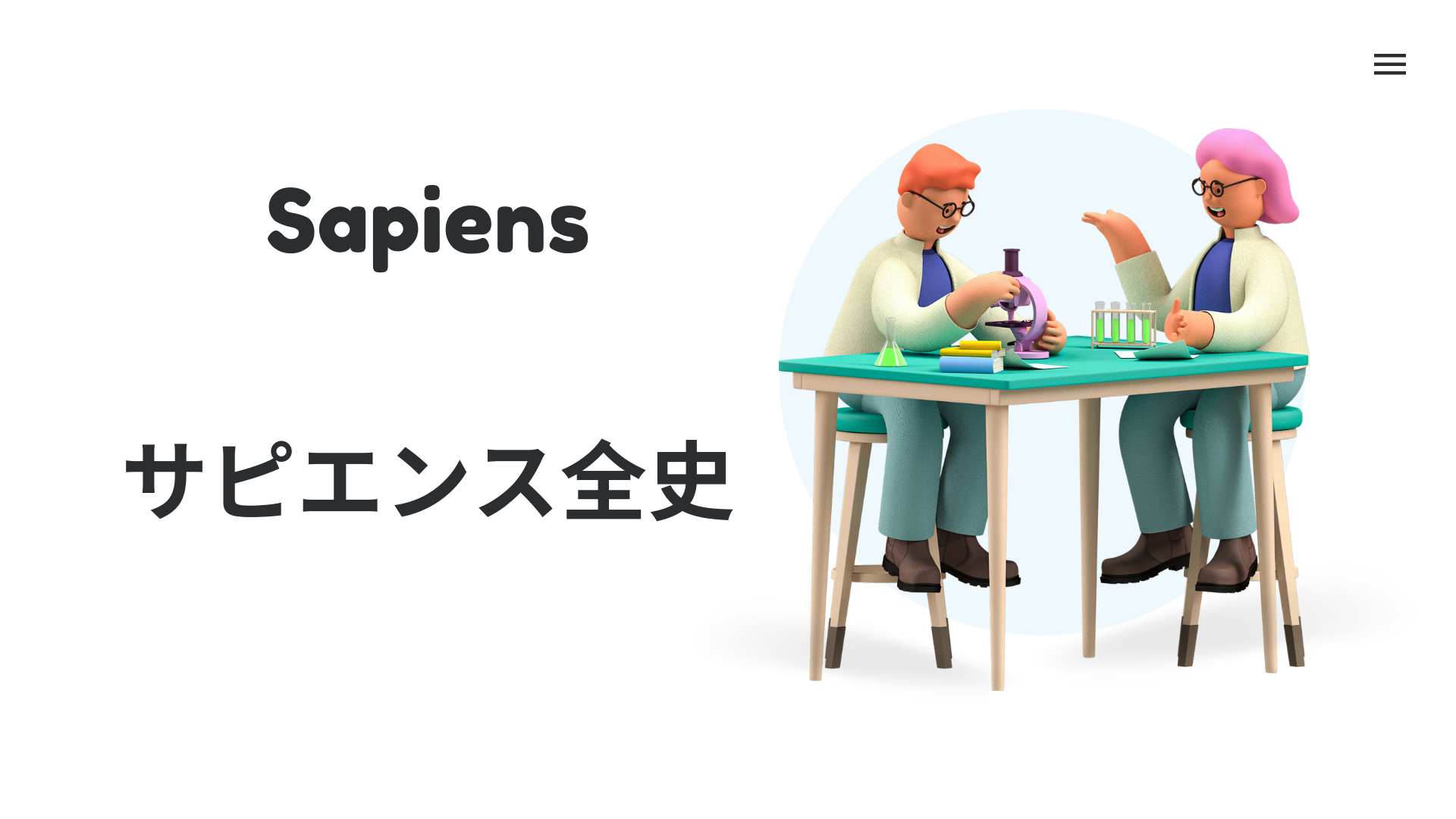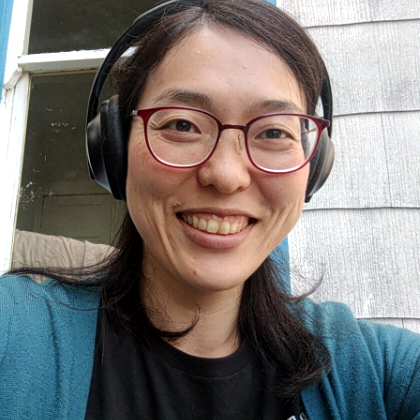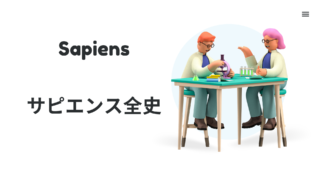
英語でSapiens を読もう📖#19
For English learners!
Hello everyone, how’s your English learning journey going?😃 Reading an English book is sometimes a long journey. You might inadvertently stop if you are alone. But no worries. You are at the right place already. I would like to explore an English book here so that you can try reading the book with me. We are not alone. Let’s enjoy a fun time reading!
The book, which I picked up this time, is called Sapiens, published by Yuval Noah Harari. The Amazon Kindle link below allows you to read up to chapter 3. Today, I am covering chapter 19.
You can check out my recommending strategy of reading as well as a bit of information about this book with a link below. Okay then, let’s get started📖
日本語学習者のみなさん!
みなさん、こんにちは。あずみです。日本語の勉強はどうですか?やさしい日本語で読むのに飽きてきたあなたに、もうワンランク上のリーディングをお届けしたい、ここはそんなブログです。英語部分で私が書いていることを、日本語で書くならこんな感じというのがテーマです。ぜひ、カジュアルな日本語のライティング表現を体験しながら、同時に興味深い本の内容も楽しんでボキャブラリーの幅を広げてくださいね。😃
英語の勉強、はかどってますか?英語の本を読むのって長い旅路ですよね。うっかり止まって挫折してしまうのはとても簡単です。でもこのブログを読んでいるあなたはだいじょうぶ。そんなあなたを応援するのがこのブログです。このブログで私は本を取り上げ、掘り下げていきたいと思いますので、よかったら私といっしょにこの本にチャレンジしてみてください。
今回読む本は、ユヴァル・ノア・ハラリさんの「サピエンス全史」です。本の内容はアマゾンキンドルのリンクから試し読みで確認してみてください。
また、こちらのリンクから英語の本のオススメの読み方について取り上げています📖ぜひ確認してみてくださいね。さぁ、19章を読みましょう。
Ch.19 And They Lived Happily Ever After
第19章 文明は人間を幸福にしたのか
Grasp the structure!🦧構成を把握する

To grasp the chapter, you just try to see its hierarchical configuration. I strongly recommend drawing it either physically or virtually.
階層構造を追い、内容を把握します。実際にメモを取りながらするとはかどります。
🚧工事中 🚧
🚧工事中 🚧
🚧工事中 🚧
🚧工事中 🚧
Summarize the chapter concisely🦧章を一言でまとめる

To summarize, check the hierarchical configuration and make sentences with important points of each.
階層構造の各部分のポイントを確認して、文にしてまとめます。
Is the fundamental shift in the currents of history, making Sapiens happier? or more miserable? What is the real source of happiness? The happiness study measures it by asking them to fill out questionnaires. Happiness depends on the correlation between objective conditions and subjective expectations. Therefore, the media, freedom, or medical breakthroughs, that modernity brought Sapiens, can cause discontent rather than happiness.
Evolution only needs a momentary rush of pleasant sensations, that the biochemical system produces such as serotonin, dopamine, and oxytocin, for survival and reproduction. Therefore, it subsides sooner or later, as if air-conditioning system. It means which era one lives in doesn’t much matter their happiness.
Happiness is determined by valuing how meaningful one’s life is. What is meaningful varies depending on culture and religion, etc. It could mean happiness is synchronizing one’s personal delusion of meaning with the prevailing collective delusions.
Although liberalism sanctifies the subjective feelings of individuals, other religions view the capability to diagnose one’s happiness differently. Some religions say happiness does not depend on external conditions, Buddhism says happiness is even independent of one’s inner feelings and is to know better one’s self.
歴史の流れにおける大きな変化は、サピエンスをより幸せにしてきたのでしょうか?それともサピエンスはより不幸になっているのでしょうか?幸せの本当の源はどこにあるのでしょうか。幸福学の研究では、人々からアンケートを集めることによって幸福度を測定しています。幸福は、客観的な条件と主観的な期待の間の相関関係によります。つまり、現代化がサピエンスにもたらしたメディアや自由、医学的進歩といった変化は幸福ではなく不満を引き起こす可能性があります。
進化において、ヒトは生存と生殖のために瞬間的な心地よい感覚のラッシュを必要とするだけです。生化学システムによって、セロトニン、ドーパミン、オキシトシンなどを生成することでなされます。したがって、このシステムはあたかも空調システムのように遅かれ早かれおさまります。ということは、どの時代に住んでいるかは、人々の幸福とあまり関係がないといえるわけです。
幸福はまた、自分の人生がどれほど意義があるかを評価することによって決定されます。何が意義があるのかは文化や宗教などによって異なります。つまり、幸福は個人的な意義の幻想と集団において優勢な幻想との呼応関係であることを意味する可能性があります。
自由主義は個人の主観的な感情を神格化していますが、他の宗教は人が自身の幸福を診断する能力を別の角度から見ています。一部の宗教は、幸福は外的条件に依存しないものと考えています。仏教ではさらに、幸福は自身の内面の感情からをも独立していると考えられ、幸福とは自分自身をよりよく知ることであると説かれています。
Make questions to discuss🦧ディスカッション用の質問を作ろう

To discuss, make questions. It gives you a great topic to talk about in English.
本について話し合うための質問を作ります。作った質問は英語で話をするときのいい話題になりますよ。
What does it mean? How are the parts connected? what is the reason for people’s actions?
There is more than one possible answer, but the viewer’s opinion is based directly on the text.
ここはどういう意味でしょう?これらの箇所はどう繋がっていますか?この行動にはどんな意味がありますか?
答えは2つ以上考えられますが、質問の答えは本文に直接基づいている必要があります。
My opinion: I don’t want to pursue a fleeting vibration and experience disappointment when it disappears. I’d rather prefer to be stable and constant. Rather than being desperate of catching a pleasure moment, I’d like to make the average level of my happiness-conditioning system gets higher. This way of thinking helps me really well not to crave external materials. And, even that attempt itself makes me content these days since the world seems to be full of discontent due to cravings.
私の意見:つかの間の喜びを追求したいと思いませんし、それが消えたとき生じる失望を経験したくもありません。私はむしろ一定で変わらない状態でありたいです。喜びの瞬間をとらえることに必死になるのではなく、自分の幸せコンディショニングシステムの平均レベルを高くしたいと思っています。このような考え方を持っていることで、物質的な欲求の影響を減らせるでしょう。そして、その試みを行っていること自体さえ、私に満足感をもたらすことでしょう。なぜなら、私には世界は渇望による不満に満ちているように見えるからです。
five questions for discussion🦧ディスカッション用の5つの質問
How does this make me feel? What does it remind me of?
There are many correct answers that are related to one’s experience; they can be found outside of the text/speech.
この箇所はどんな風に感じますか?何を思い出させますか?
個人の経験に関連するたくさんの答えが本文の外で見つけられることが考えられます。
What does it say?
One correct answer is found in the text.
なんと言っていましたか。
答えは一つです。テキスト内でみつけることができます。
What does it mean? How are the parts connected? what is the reason for people’s actions?
There is more than one possible answer, but the viewer’s opinion is based directly on the text.
ここはどういう意味でしょう?これらの箇所はどう繋がっていますか?この行動にはどんな意味がありますか?
答えは2つ以上考えられますが、質問の答えは本文に直接基づいている必要があります。
What is the message beyond this presentation? What are the greater issues or questions this piece deals with?
The presentation is not directly referenced in the question. There are many possible answers found outside of the presentation, but it’s a starting point.
このトピックが伝える、もっと大きなメッセージはなんでしょう?このトピックの先にどんな大きな問題が見えますか?
この質問は、このトピックと直接リンクする必要はありません。この話の外側にたくさんの答えがあるでしょう。でも、このトピックがいいスタートポイントになります。
How effective is the presentation in whole or in part? Why did the speaker/author make these choices and how well do they work?
Many possible answers can be found outside of the presentation but it’s a reference.
この箇所は全体の中で/この部分においてどう効果的な役割を果たしていますか?どうして話者はこのような表現をしましたか、またそれはどのように機能していますか?
たくさんの答えが本文の議論の外でひとつの例としてみちびかれる可能性があります。
Expressions and terms🦧覚えておきたい単語・表現

Pick some terms that you are unfamiliar with from sentences you high-lightened and memorize them because you need them to discuss this chapter!!
読みながらハイライトした特に重要だと思う文の中から、使い慣れていない言葉を選んで覚えましょう。なぜかというと、ディスカッションで意見や考えを言うために必要になるからです。
| term | example sentence |
|---|---|
| alleviate | Since humans generally use their capabilities to alleviate miseries and fulfill aspirations, it follows that we must be happier than our medieval ancestors, and they must have been happier than Stone Age hunter-gatherers. |
| clout | Given the proven human propensity for misusing power, it seems naïve to believe that the more clout people have, the happier they will be. |
| ill-suited | as humankind gained more and more power, it created a cold mechanistic world ill-suited to our real needs. |
| condemn | The transition first to agriculture and then to the industry has condemned us to live unnatural lives that cannot give full expression to our inherent inclinations and instincts, and therefore cannot satisfy our deepest yearnings. |
| blight | Mass famines continued to blight much of humanity up to the middle of the twentieth century. |
| 単語 | 例文 |
|---|---|
| 和らげる | 人間は一般的に自らの能力を使って悲惨さを和らげ、願望を満たすからして、私たちは中世の祖先よりも、石器時代の狩猟採集民よりも幸せだったに違いないのだ。 |
| 影響力 | 権力を悪用しがちだという人間の証明済みの傾向考慮すると、人々が影響力を持てば持つほど、幸せになれると信じることは世間知らずな考え方のように映る。 |
| 適さない | 人類がますます力を得るにつれて、その能力は彼らの本当のニーズに適さないの冷たい機械的な世界を作り出しました。 |
| 追いやる | 農業への移行や工業への移行は私達を不自然な生活に追いやった。その生活では人間は本来持っている傾向や本能を満たせず、ゆえに本当に望むものを満たすことができない。 |
| 破滅させる | 大量の飢饉は、20世紀の半ばまで人類の多くを破滅させ続けました。 |

The first English book I’ve tried reading in my life is The Geography of Bliss by Eric Weiner. In this book, Weiner discusses happiness in terms of pleasure sensation and contentment. Through traveling to ten countries, the author tries to figure out what is happiness for people in each country. Appling this chapter’s insight, I understand that the standard of happiness in each country represents their culture as a reflection of which country’s people more value the meaning of life or pleasure sensations in happiness. I agree with Harari’s point that life’s meanings for each individual stand on their collective cultural values. Thereby, even if the perception of happiness varies by individual, still we find different tendencies of the definition of happiness in different countries. What do you think is your country’s general happiness?
私が人生で最初に読んだ英語の本は、EricWeinert著のTheGeography ofBlissです。この本で作者は幸福を快感と満足という観点から論じています。10カ国を旅しながら、各国の人々の幸せとは何かを考察しているのです。この19章を読んだ上で、改めて幸福の国による違いについて考えてみると、国ごとの幸福という価値観はまさにそれぞれの国の文化を反映しているということがよく理解できます。人生の意義を重視するのか、または喜びを重視するのか、というのは結局のところ文化の反映というわけです。そして、個人の人生の意義がその人々の集合的な文化的価値観に基づいているというハラリの主張にはとても納得でした。なので、幸福の認識が個人によって異なる場合でも、国によって幸福の定義にはそれぞれの傾向が見られることになるというのも腑に落ちます。あなたの国では幸福は一般的にどんなものだと考えられているでしょう?





コメント